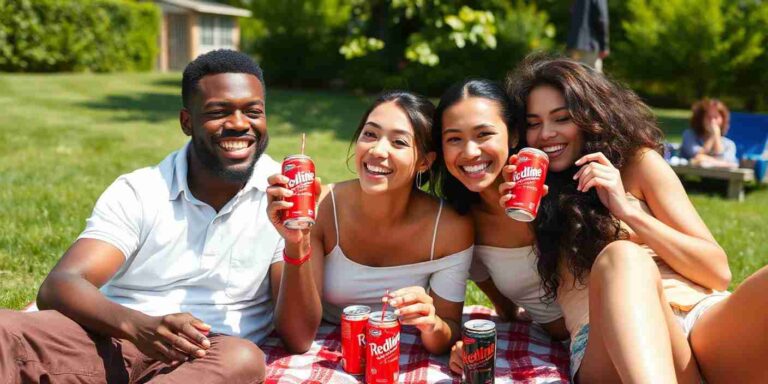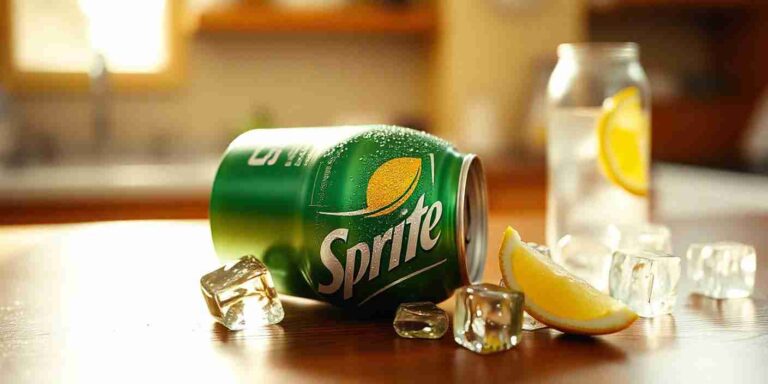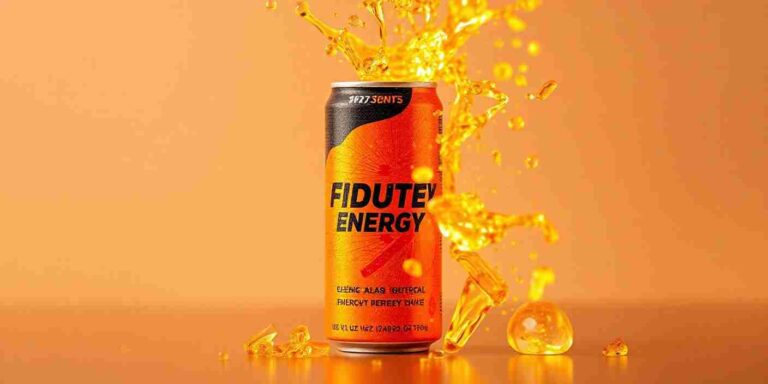Is Boba Tea Halal or Haram? A Guide to Enjoying Boba While Following Islamic Guidelines!
Is Boba Tea Halal or Haram? Boba tea can be halal, but it depends on the ingredients used. As this popular drink gains fans around the world, many people are curious about its dietary status, especially within the Muslim community. With a variety of flavors and toppings, boba tea’s composition can vary widely.
To determine if boba tea is halal or haram, you’ll need to consider factors like the type of milk or sweeteners used and whether any alcohol-based flavorings are present.
Understanding these details will help you make informed choices that align with your beliefs while enjoying this delightful treat.
Key Takeaways
- Halal Status Depends on Ingredients: Boba tea can be halal or haram based on its ingredients, including the type of milk, sweeteners, and flavorings used.
- Key Components: The main ingredients in boba tea, such as tea, tapioca pearls, and standard sugars are generally considered halal when sourced responsibly.
- Avoid Pork and Alcohol: Ensure that tapioca pearls do not contain pork-based gelatin and avoid any alcohol-infused flavors to maintain halal compliance.
- Check for Halal Certification: Look for shops that offer clear halal certification to ensure all components meet Islamic dietary laws.
- Ask About Ingredients: Always inquire about ingredient sourcing when ordering boba tea to clarify if any questionable additives or toppings are included.
- Make Informed Choices: By understanding the composition of boba tea and following guidelines, you can enjoy this popular beverage while adhering to your dietary preferences.
Understanding Boba Tea
Boba tea, also known as bubble tea or pearl milk tea, is a popular drink that originated in Taiwan during the early 1980s.
This unique beverage combines tea with chewy tapioca balls, often referred to as “boba.” You can find various flavors and toppings that enhance its appeal.
What Is Boba Tea?
Boba tea consists of a base made from tea, which may be black, green, oolong, or herbal. The drink typically includes ingredients like milk or creamer, sweeteners such as sugar or honey, and chewy tapioca pearls.
Many people enjoy customizing their boba tea with additional toppings like popping boba or jelly for extra texture and flavor.
Ingredients of Boba Tea
The main components of boba tea include:
- Tea Base: Common choices are black, green, oolong, and herbal teas.
- Milk or Creamer: You can choose between dairy options like whole milk or non-dairy alternatives including almond milk and oat milk.
- Sweeteners: Options range from regular sugar to honey and other natural sweeteners for added taste.
- Tapioca Pearls: These chewy spheres are made from tapioca flour mixed with water and brown sugar.
- Other Toppings: Popular additions include popping boba filled with fruit juice, jellies made from various ingredients, pudding for creaminess, and fresh fruits for a refreshing twist.
Understanding these ingredients helps you make informed choices about whether your boba tea aligns with your dietary preferences.
Halal Considerations
When enjoying boba tea, it’s essential to consider its halal status based on the ingredients used. Understanding these factors helps ensure that your choices align with Islamic dietary laws.
Definition of Halal
Halal means permissible in Arabic. Foods and drinks labeled halal meet the guidelines set by Islamic law.
For a product to be considered halal, it must not contain any haram (forbidden) components. Boba tea can be halal if made with the proper ingredients and methods.
Common Ingredients in Boba Tea
Boba tea typically includes several common ingredients:
- Tea: Most teas used are halal, including black, green, or herbal varieties.
- Milk or Creamer: Dairy products from halal sources are acceptable. Non-dairy alternatives may also be used.
- Sweeteners: Sugar and honey are generally considered halal. Be cautious with artificial sweeteners; confirm their sources for compliance.
- Tapioca Pearls: These pearls usually consist of starch from cassava root and water, making them largely acceptable under halal guidelines.
While these ingredients are mostly permissible, some considerations remain critical for ensuring your boba tea is truly halal:
- Pork-Based Gelatin: Certain brands of tapioca pearls might include gelatin derived from pork. Always check the label for this ingredient.
- Alcohol-Infused Flavors: Avoid flavors containing alcohol, as they do not comply with Islamic dietary rules.
- Haram Meat Toppings: Popular toppings like bacon or ham should not be added since they come from haram animals.
- Bottled Tea with Alcohol: Bottled options may contain alcohol as a preservative; read labels carefully before consumption.
- Unknown Artificial Additives: Some bubble teas use artificial flavors whose origins may not be clear; verify these additives’ halal status before indulging.
By understanding these aspects of boba tea’s composition, you can confidently enjoy this popular drink while adhering to your dietary beliefs.
Is Boba Tea Halal or Haram?
Boba tea is generally considered halal when made with the right ingredients. The basic components like tea, milk, sugar, and tapioca pearls comply with Islamic dietary laws. However, certain factors can affect its halal status.
Analyzing Popular Ingredients
When looking at boba tea, focus on these key ingredients:
- Tea: Most teas are halal. Choose traditional options like black or green tea for assurance.
- Milk: Cow’s milk is typically halal. Check for any additives that may alter this status.
- Sugar: Standard sugar is always halal, but be cautious with flavored syrups that might contain alcohol.
- Tapioca Pearls: These are usually halal, but some brands use pork-based gelatin in their production.
It’s essential to read labels and ask about specific ingredients in your boba drink to ensure it meets your dietary requirements.
Perspectives from Islamic Scholars
Islamic scholars agree on the importance of ingredient selection in determining whether boba tea is halal. They emphasize avoiding:
- Pork-based products: Any item containing pork elements makes a drink haram.
- Alcohol-infused flavors: Alcohol renders food and drinks non-halal.
- Unknown additives: Ingredients lacking clear labeling raise concerns over their compliance with halal standards.
Many scholars recommend seeking out shops that offer clear halal certification. This ensures all items served meet Islamic guidelines, allowing you to enjoy your boba tea without worry.
Making an Informed Choice
Choosing halal boba tea involves understanding the ingredients and their sources. You can enjoy this popular drink while ensuring it meets Islamic dietary laws by being informed about what goes into it.
How to Choose Halal Boba Tea
- Check Ingredients: Always read labels on ready-made products. Look for halal-certified labels on the tapioca pearls, syrups, and milk used in your boba tea.
- Ask Questions: When visiting a boba shop, ask staff about their ingredient sourcing. Ensure they use no pork-based gelatin or alcohol-infused flavors.
- Look for Certification: Choose shops that prominently display halal certification from recognized bodies. This shows commitment to serving compliant food and drinks.
- Gelatin Substitutes: Use agar-agar or plant-based gelling agents instead of pork-derived gelatin in boba pearls.
- Alcohol-Free Flavors: Opt for natural fruit flavors or syrups without any alcohol content.
- Meat Toppings: Select toppings like fruits, nuts, or jelly instead of bacon or other haram meats.
By focusing on these steps, you can ensure your choice of boba tea aligns with your dietary needs while enjoying this tasty beverage responsibly.
Conclusion
Enjoying boba tea while adhering to halal guidelines is entirely possible with careful ingredient selection.
By being vigilant about what goes into your drink and choosing shops that provide clear halal certification, you can savor this delightful beverage without worry.
Always double-check labels for halal compliance and don’t hesitate to ask staff about their ingredients.
With these practices in mind, you can indulge in boba tea confidently knowing you’re making choices aligned with your dietary beliefs.
Frequently Asked Questions
Is boba tea halal?
Boba tea can be halal if made with compliant ingredients. Ensure it contains halal-certified components like tea, milk, sugar, and tapioca pearls while avoiding pork-based gelatin or alcohol-infused flavors.
What ingredients should I avoid in boba tea to keep it halal?
To maintain its halal status, avoid ingredients such as pork-based gelatin, alcohol-infused flavors, and haram meat toppings. Always check ingredient labels before purchasing.
How can I ensure my boba tea is halal?
Choose shops that offer clear halal certification. Inquire about their ingredient sourcing and opt for alternatives like agar-agar instead of gelatin to ensure compliance with Islamic dietary laws.
Can I customize my boba tea to make it halal?
Yes! You can customize your boba tea by asking for specific ingredients that comply with halal standards. Opt for non-alcoholic flavors and verify the source of any toppings used.
Where can I find halal-certified boba tea shops?
Look for local listings online or use apps that specialize in identifying halal establishments. Many cities have dedicated websites or social media groups where you can find recommendations.






